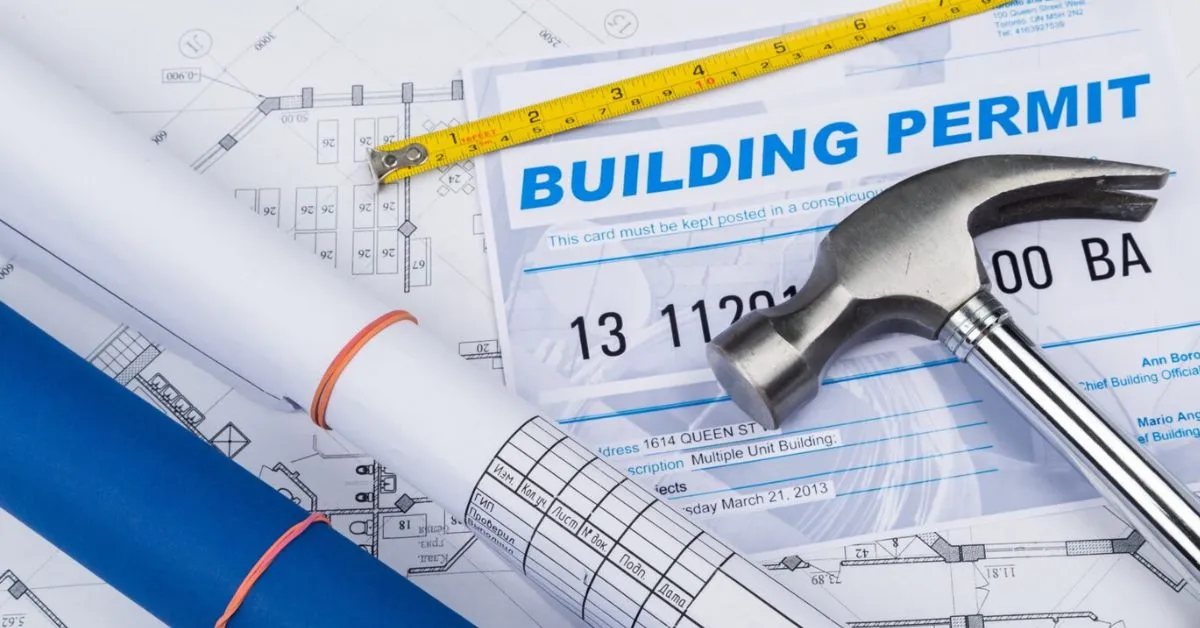Entitlements are legal rights or permissions granted by government authorities that allow property owners, developers, and investors to proceed with a proposed real estate development project.
These entitlements outline the approved uses, density, design, and other parameters for the project, ensuring compliance with local zoning codes, regulations, and community standards.
What are Real Estate Entitlements?
Real estate entitlements refer to the various approvals, permits, and authorizations required from governmental agencies and local jurisdictions before a development project can move forward. These entitlements establish the legal rights and limitations for the proposed land use, zoning, construction, and overall plan for the property.
Obtaining entitlements is a crucial step in the real estate development process, as it provides legal certainty and protects the interests of property owners, landowners, developers, investors, applicants, and buyers. It ensures that the project adheres to the zoning code, regulations, ordinances, rules, laws, and requirements set forth by the local community, residents, neighborhood, public, citizens, and stakeholders.
The 9 Entitlement Processes
The entitlement process typically involves several steps, each with its own set of requirements and approvals.
Here are the nine common entitlement processes:
1. Identifying the Property and Project Scope
The first step involves defining the property boundaries, location, and the proposed development’s scope, including the intended land use, zoning, planning, and development purpose. This information is essential for initiating the entitlement process.
In this stage, developers often conduct thorough site analyses, market studies, and feasibility assessments to determine the most suitable and profitable use for the property. They may also consult with architects, urban planners, and real estate experts to ensure that the proposed project aligns with local zoning regulations and development guidelines.
2. Preliminary Design and Planning
Once the project scope is established, the development team prepares preliminary designs, site plans, and architectural renderings to illustrate the proposed utilization of the property. These designs serve as the basis for the approval process and subsequent review and application stages.
The preliminary design phase is critical for communicating the project’s vision and demonstrating how it will fit into the surrounding environment. Developers often work closely with architects, engineers, and other design professionals to create detailed plans that address factors such as building heights, setbacks, parking requirements, and landscaping.
3. Community Engagement
Many jurisdictions require community engagement, which involves public input, outreach, involvement, participation, and feedback from local residents and stakeholders. This step aims to address potential concerns and incorporate community perspectives into the project design.
Community engagement can take various forms, such as public meetings, workshops, or online forums, where developers present their plans and gather feedback from residents, neighborhood associations, local businesses, and other stakeholders. This process helps identify potential issues early on and allows developers to make adjustments to their proposals to better align with community needs and concerns.
4. Application for Entitlements
The development team submits a formal application to the relevant authorities, which typically includes detailed project plans, environmental impact assessments, and other supporting documentation. This submission initiates the official evaluation and permitting process.
The application package is often extensive and may include items such as site plans, architectural drawings, engineering reports, traffic studies, environmental assessments, and legal documents. Developers must ensure that their applications are complete and comply with all relevant regulations and submission requirements to avoid delays or rejections.
5. Review and Approval Process
Local planning departments, zoning boards, and other regulatory bodies review the application and associated materials to ensure compliance with all applicable codes and regulations. This process may involve public hearings, meetings, and negotiations to address any concerns or issues.
During the review process, various stakeholders, including city planners, zoning officials, environmental agencies, and community groups, may provide input and raise concerns about the project. Developers may need to make modifications to their plans or provide additional documentation to address these concerns.
6. Conditional Use Permit and Zoning Variance
Depending on the project’s specifics, the development team may need to obtain a conditional use permit or seek variances, exceptions, deviations, waivers, or amendments to existing zoning regulations. These approvals allow for specific uses or deviations from standard zoning requirements.
A conditional use permit is typically required when the proposed development includes a use that is not explicitly permitted in the zoning district but may be allowed under certain conditions or restrictions. For example, a residential development in a commercial zone or a mixed-use project may require a conditional use permit.
7. Road and Utility Approvals
Most development projects require utility approvals for infrastructure, services, connections, utilities, and facilities such as water, sewer, electricity, and telecommunications. These approvals are typically obtained from local utility providers and public works departments.
Developers must coordinate with utility companies and public works agencies to ensure that the proposed project can be adequately served by existing infrastructure or to plan for necessary upgrades or extensions. This may involve negotiating easements, paying for infrastructure improvements, or adhering to specific design and construction standards.
8. Building Permit and Construction Documents
Once all necessary entitlements are secured, the development team can apply for a building permit and submit detailed construction documents, including architectural plans, engineering drawings, and specifications, for review and approval by the local building department.
Building permits are essential for ensuring that the construction process adheres to all applicable building codes, safety standards, and zoning regulations. The review process typically involves a thorough examination of the construction documents by various departments, such as building inspections, fire safety, and accessibility compliance.
9. Construction and Occupancy Permits
After obtaining the building permit, construction can commence. Upon completion, the project undergoes final inspections, and an occupancy permit is issued, allowing the building to be occupied and utilized as intended.
During the construction phase, developers must ensure that all work is performed in accordance with the approved plans and permits. Inspections by local building officials are typically required at various stages of construction to verify compliance with codes and regulations.
The 4 Types of Real Estate Entitlements
While specific entitlement requirements may vary by jurisdiction, there are four common types of real estate entitlements:
1. Use Permits
Use permits are required when the proposed land use or development differs from the property’s current zoning designation. These permits allow for specific uses, such as commercial, residential, or industrial activities, that may not be permitted by default under the existing zoning regulations.
2. Zoning Variances
Zoning variances are approvals that grant exceptions or deviations from certain zoning requirements, such as setbacks, building heights, lot coverage, or parking regulations. These variances are typically granted when strict adherence to the zoning code would create practical difficulties or unnecessary hardships for the property owner or developer.
3. Change of Use Permits
Change of use permits are required when the intended use of an existing building or property differs from its current approved use. For example, converting a residential property into a commercial space or repurposing an office building for residential use would necessitate a change of use permit.
4. Road and Utility Approvals
As mentioned earlier, road and utility approvals are necessary for the development to access essential services and infrastructure, such as water, sewer, electricity, and telecommunications. These approvals ensure that the project meets the standards and requirements set by the local utility providers and public works departments.
The 5 Important Real Estate Entitlements
While there are various entitlements required for a real estate development project, the following five are particularly important:
1. Maximizing Property Value
Obtaining the appropriate entitlements can significantly enhance a property’s value, worth, appraisal, assessment, valuation, and price. By securing approvals for higher density, added square footage, or more favorable zoning, developers can maximize the potential return on investment.
2. Compliance with Local Regulations
Entitlements ensure that the development project adheres to all applicable regulations, conformance, adherence, obedience, observance, and accordance with local codes and standards. This compliance is essential for avoiding legal issues, fines, or project delays.
3. Community Support
The community engagement process, which is often a part of the entitlement process, helps to gain public input, outreach, involvement, participation, and feedback from local residents and stakeholders. This support can be crucial for obtaining necessary approvals and minimizing potential opposition to the project.
4. Investor Confidence
Securing entitlements provides legal certainty and reduces investment risks, which can increase investor confidence in the project. Investors are more likely to commit funds to a development that has obtained the necessary approvals and has a clear path forward.
5. Legal Protection
Entitlements protect the rights of property owners, developers, and investors by establishing the legal parameters for the development project. This legal protection can be invaluable in case of disputes, challenges, or changes in local regulations.
5 Challenges and Potential Conflicts
While the entitlement process aims to ensure orderly development and compliance with local regulations, it can also present several challenges and potential conflicts:
1. Opposition from Local Residents
Despite community engagement efforts, some local residents may still oppose the proposed development due to concerns about increased traffic, noise, or other impacts on their neighborhood. Addressing these concerns and gaining community support can be a significant challenge.
2. Government Approvals
Navigating the complex web of government approvals from various agencies and departments can be time-consuming and challenging, especially for large or complex projects. Delays or denied approvals can significantly impact project timelines and costs.
3. Changes in Local Rules
During the entitlement process, which can span several years, local rules, regulations, or political leadership may change, potentially affecting the project’s viability or requiring additional approvals or modifications.
4. Utility Approvals
Obtaining utility approvals can be a complex process, especially in areas with aging infrastructure or limited capacity. Negotiations with utility providers and coordinating infrastructure upgrades can be challenging and costly.
5. Conflicting Interests
In some cases, the interests of property owners, developers, investors, local residents, and government agencies may conflict, leading to disputes and potential legal battles over the entitlement process or project specifics.
The Role of Experience and Expertise
Given the complexities and potential challenges involved in the entitlement process, it is crucial for property owners, developers, and investors to work with experienced professionals who have a deep understanding of local regulations, community dynamics, and the entitlement process itself.
Experienced real estate attorneys, land use consultants, and project managers can provide invaluable guidance throughout the entitlement process, helping to navigate the various requirements, address potential conflicts, and ensure a smooth and successful outcome.
Final Words
Real estate entitlements are a critical component of any development project, establishing the legal framework and parameters for the proposed land use, zoning, construction, and overall plan. Navigating the complexities of the entitlement process can be challenging, but it is essential for ensuring compliance with local regulations, gaining community support, and maximizing the project’s potential value.
By following the nine entitlement processes outlined in this article, property owners, developers, and investors can increase their chances of success in obtaining the necessary approvals and permits. However, it is crucial to recognize the potential challenges and conflicts that may arise, such as opposition from local residents, changes in local rules, and conflicting interests among stakeholders.
Engaging experienced professionals, such as real estate attorneys, land use consultants, and project managers, can provide invaluable guidance throughout the entitlement process. Their expertise in navigating local regulations, community dynamics, and the intricate approval processes can help streamline the entitlement journey and mitigate potential risks.
Frequently Asked Questions
What are entitlements in real estate?
Entitlements in real estate refer to the legal rights developers or property owners need from government agencies to proceed with construction or development.
What types of entitlements are common?
Common entitlements include zoning approvals, building permits, environmental clearances, and land use permits.
Why are entitlements important?
Entitlements are crucial because they authorize the use and development of land, ensuring projects comply with local regulations.
How do you obtain entitlements?
Entitlements are obtained through an application process with local government agencies, which review the proposed project against zoning and land use regulations.
Can entitlements be challenged?
Yes, entitlements can face challenges from community groups or concerned citizens during the public review process, which may affect project timelines and costs.















